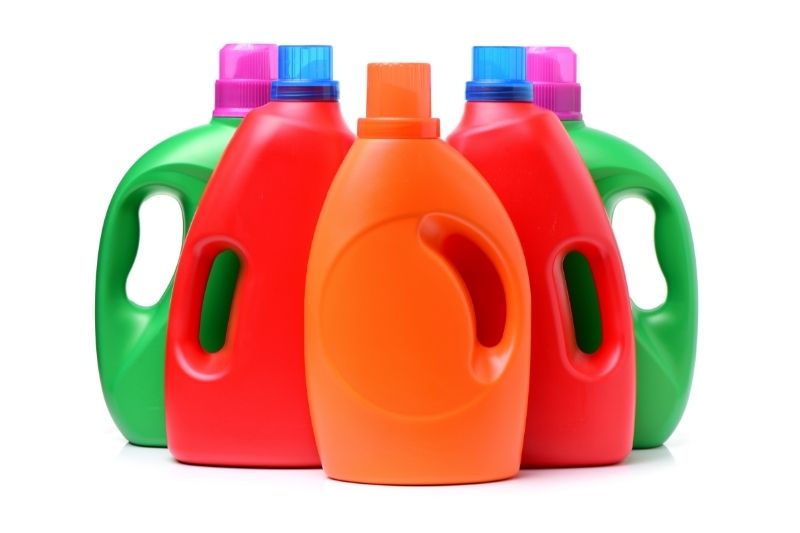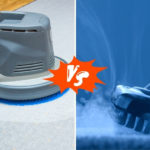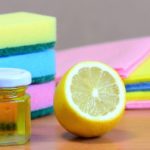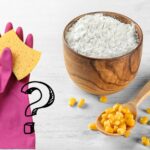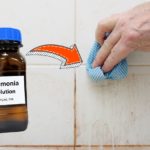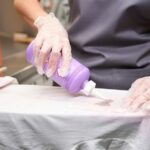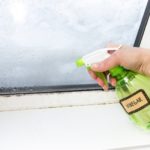When you’re facing a mammoth cleaning task, you might come up with the bright idea of concocting your own cleaning potion to speed the process along!
Well, the truth is… mixing cleaning chemicals is an extremely bad idea!
You should never mix cleaning products unless you know what you’re doing, because they all contain different chemicals, and these chemicals usually don’t blend well together.
Jumbling a couple of cleaning chemicals up can result in a chemical reaction being triggered, and this leads to toxic gases being released into the air, and in some cases, the user may have to seek medical attention.
As you can see it’s not a good idea to bring together different cleaning chemicals. But to really hit this point home, check out the list of chemicals that should never be mixed together below.
Remember: Just use one cleaning chemical at a time!
What Cleaning Chemicals Should Never Be Mixed Together?
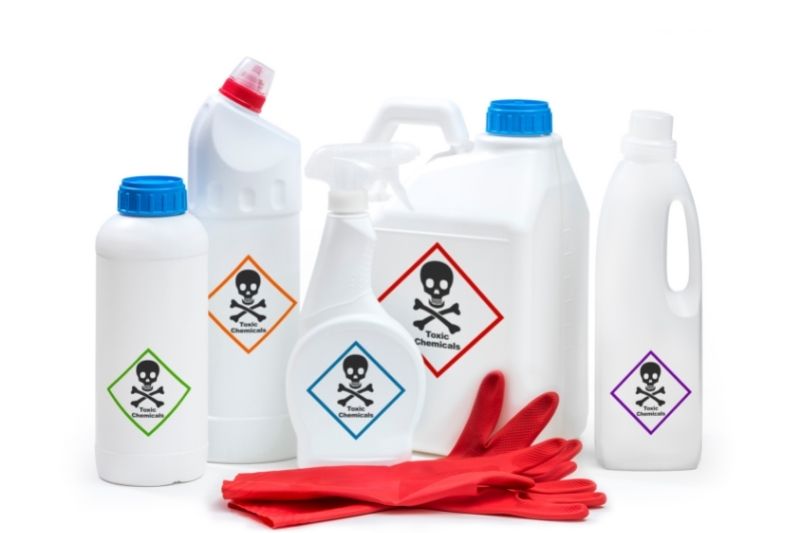
Mixing a couple of cleaning chemicals together is a very dangerous act. So, treacherous that you might have to seek medical advice from a doctor!
It is always better to use one cleaning product at a time, and you should never, ever mix bleach with anything other than water.
Let’s take a closer look at what cleaning chemicals you shouldn’t blend together.
1. Bleach and Ammonia
Ammonia is an ingredient that is often found in cleaning products, and when it is mixed with bleach, which is usually done by accident because someone didn’t check the ingredients listed on the bottle, you end up with chloramine gas.
Generally speaking, when chlorine bleach is mixed with an ammonia-based product, the two chemicals react together and make chloramines.
If you are exposed to some chloramine gas you might feel nauseous, chest pain and difficulty breathing.
However, you should seek immediate medical attention if your symptoms get worse.
2. Bleach and Vinegar
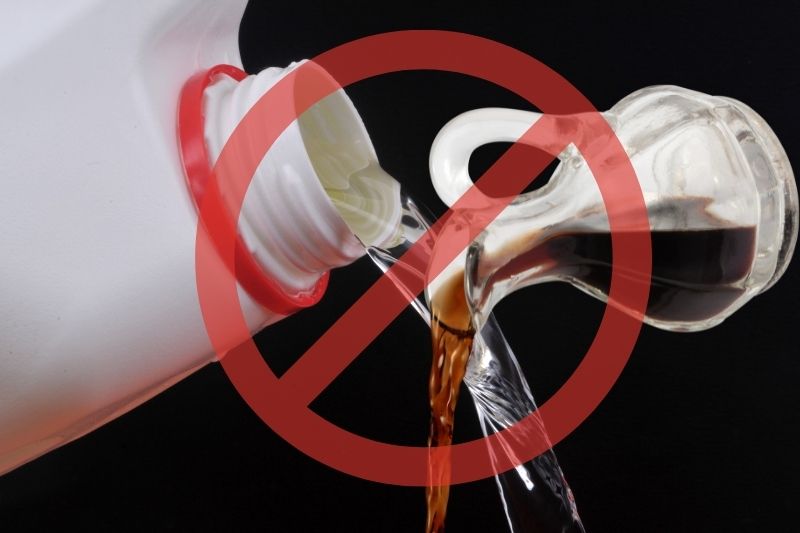
Rustling up a potion of bleach and vinegar will not end well, even though vinegar seems like a harmless ingredient!
When you mix bleach and vinegar together you typically end up with chlorine gas, which is similar to the gas you get when you combine ammonia and bleach. This gas typically occurs because you’ve mixed an acid-based product with bleach.
People tend to overlook the fact that vinegar is an acid, and even though it’s fairly natural, when it’s mixed with the likes of bleach, it can be fatal. So, be aware of mixing these two products together!
If you think that you have mixed bleach with vinegar you need to seek medical attention immediately.
The effects of mixing vinegar and bleach include: coughing, eyes watering, trouble breathing and a runny nose.
3. Bleach and Isopropyl Alcohol
Isopropyl alcohol is a great cleaning agent when it’s used on its own, and it can also remove harmful bacteria from surfaces.
However, because of its extremely high concentration of alcohol, when it is combined with bleach it makes chloroform and/or chloroacetone.
Chloroform, as you might know already, is the stuff they use to render someone unconscious in films.
And while the amount of chloroform you’d make at home by accident isn’t likely to be a huge amount, it can still irritate your eyes and it’ll be very toxic.
Chloroacetone, on the other hand, was used in World War I as tear gas. It was nasty stuff back then and it still is today!
4. Bleach and Toilet Cleaners
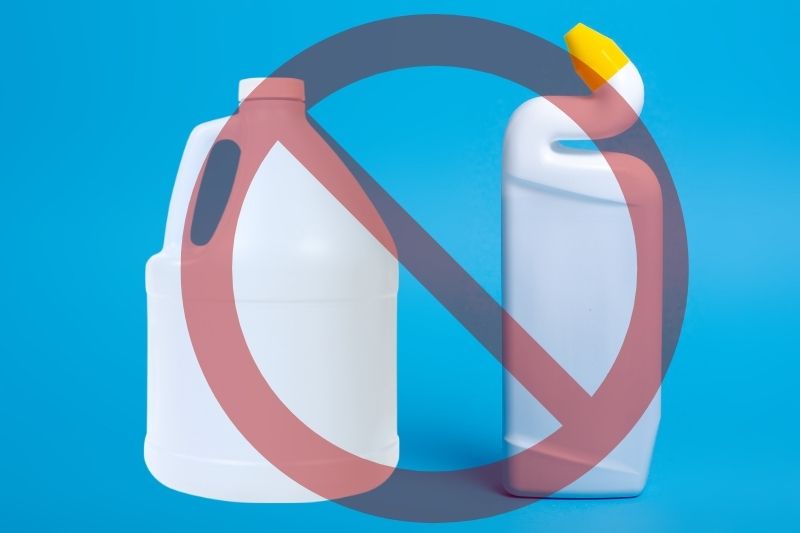
In general, toilet cleaners contain acids and alcohols that react with bleach. This, in turn, causes toxic gas, like chlorine gas and fumes to permeate through the air. Which can result in people feeling sick, having watery eyes and having trouble breathing.
This type of mix can usually be avoided by simply reading the ingredients listed on the toilet cleaner’s bottle. Such a simple exercise can literally save you from being harmed.
And if ever you’re in doubt about what product to use down the toilet, you should just stick to using one item at a time.
5. Bleach and Other Cleaning Products
You should never really mix bleach with anything other than water. Combining bleach with even the most basic of cleaning products never ends well – even if it sounds harmless on the surface!
General cleaning items to avoid, include:
- Dettol
- Zoflora
- Mildew treatments
- Window cleaners
- Drain cleaners
- Rust cleaners
- Driveway cleaners
All of these products can cause breathing and irritation problems when mixed with bleach. So, just avoid blending such chemicals together.
6. Vinegar and Hydrogen Peroxide
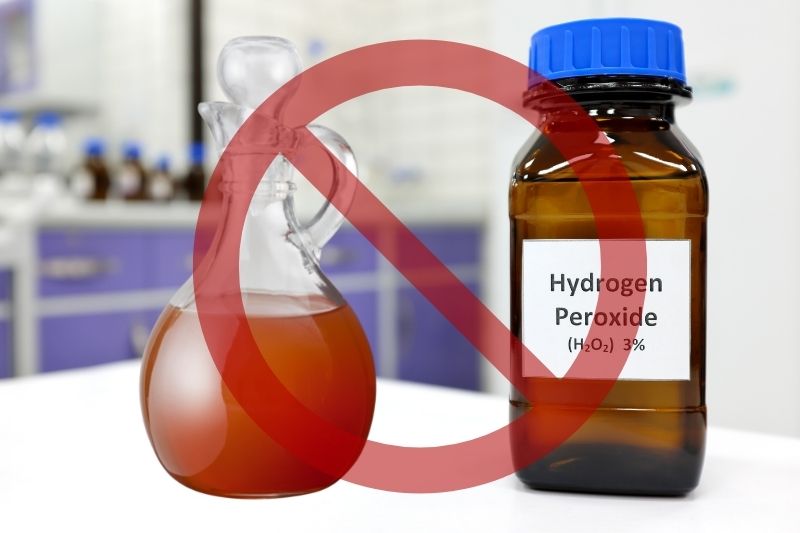
If you happen to mix vinegar and hydrogen peroxide together you will end up with a chemical called peracetic acid. This type of acid is incredibly corrosive and highly toxic, and will damage surfaces that it comes into contact with.
In addition to this, peracetic acid can irritate the skin and can cause breathing-related problems.
You should seek medical attention immediately if you feel unwell.
7. Using Two Drain Unblockers at Once
There are various types of drain unblockers to be had and they all contain different chemicals. Which means that they’ll likely react badly together if they get mixed up.
And while mixing chemicals is bad enough, it’s an even sillier idea to blend chemicals together when you don’t know what the chemicals in question actually are!
If you don’t know what you’re putting together to start off with, you won’t know what type of chemical reaction to expect, which is worse!
Also, given the fact that several drain unblockers contain bleach, and bleach never reacts well with anything other than water, you should definitely avoid doing this.
Some typical outcomes of mixing two drain unblockers together include toxic fumes being released into the air and heat. This, in turn, typically leads to users coughing, burning their skin and perhaps having trouble breathing.
8. Combining Different Brands of Cleaning Products
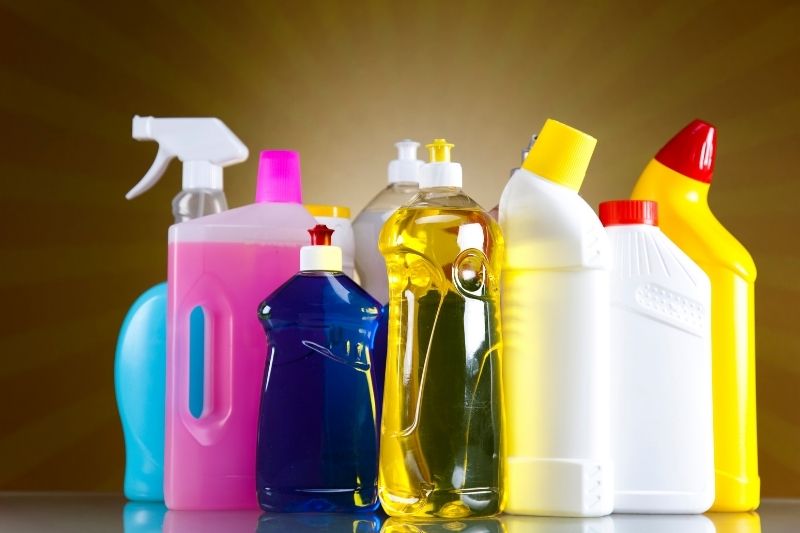
While it may be tempting to pour the dregs of an old cleaning product into a brand new cleaning product’s bottle, it isn’t wise to do so!
Typically, different cleaning products are made up of different ingredients. And if you were to blend these ingredients together, it’s not exactly clear what will happen.
You may be lucky and get off unscathed, or you might cause a major chemical reaction to occur, and this may lead to chemical gases getting released into the air in your home. Either way, it’s just not worth taking the risk.
In short, don’t mix different cleaning products together because it could cause more harm than its worth. Or, you might find that the cleaners neutralise one and other, making them ineffective. So, you could end up wasting money!
What Are the Risks of Mixing Cleaning Chemicals?
Here is what could happen if you mix different cleaning chemicals together:
- Toxic gases could be released into the air in your home/office.
- You might find yourself coughing, suffering with chest pain, sickness and watery eyes.
- Mixing acids with bleach will cause: eye, nose and throat irritation.
- Your skin may become irritated.
What Should You Do If You Accidentally Mix Chemicals Together?
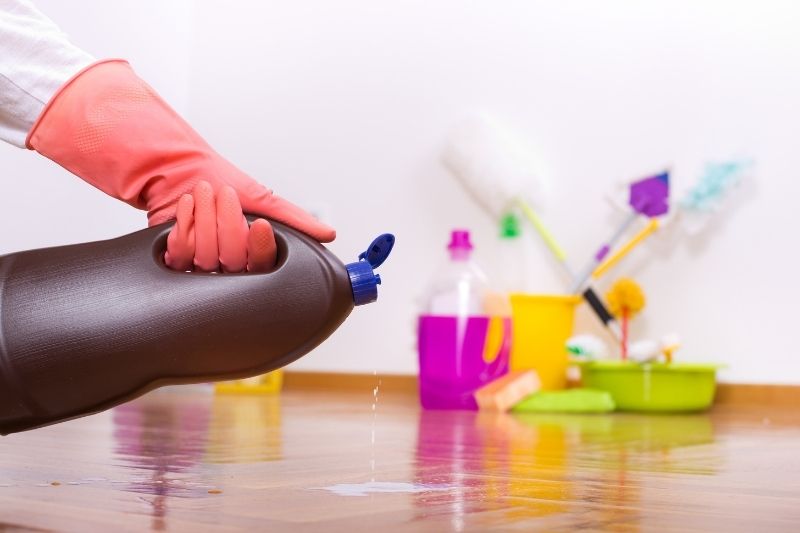
You should always try your best to avoid mixing chemicals of any kind, but here’s what to do if you have a mishap:
- Make sure you open all the doors and windows to allow air into your home/office.
- Keep kids and pets out of the room.
- Call for medical assistance, especially if you are short of breath.
- Remove yourself from the problem area.
In the future you should:
- Always wear protective gear when you are working with chemicals.
- Wipe down surfaces that have come into contact with the bleach before using a new product on the area.
- Always read product labels before you use them.
- Do your absolute best not to mix chemicals together.
- If you’re ever in doubt, just use one cleaning product at a time.
- If you can’t solve problems by yourself, call a professional to help you out.

Bethan has a passion for exploring, reading, cooking and gardening! When she’s not creating culinary delights for her family, she’s concocting potions to keep her house clean!
